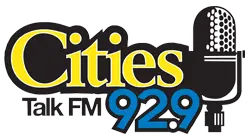(The Center Square) – As Illinois grapples with a possible $800 million budget deficit, a measure that could have a taxpayer price tag of an additional $68 million for student teacher stipends is on its way to the Senate.
State Rep. Barbara Hernandez, D-Aurora, carried House Bill 4652 out of the House Tuesday.
“That would allow students to receive $10,000 [a semester] and cooperating teachers $2,000,” she said. “This is subject to appropriation as well, but as we all know we have a shortage on teachers.”
State Rep. Fred Crespo, D-Hoffman Estates, supported the idea but warned that the measure being subject to appropriation is an empty promise.
“All I can say is you can’t have it all. You can ask but taxpayers can’t afford it,” Crespo said. “If we keep this up, at some point you’re going to run out of taxpayer dollars to spend.”
Last week, Gov. J.B. Pritzker’s administration told state agencies to prepare for $800 million in cuts if legislators don’t approve nearly $1 billion in tax increases.
The measure would be for student teachers in public schools only and could impact close to 5,000 educators for a total cost of $68 million if the program is fully funded.
State Rep. Laura Faver Dias, D-Chicago, stood up in support of the measure.
“Low income teachers are having trouble completing their student teacher experience and actually quit and never get their teacher license because they cannot afford to work for 16 weeks unpaid,” she said.
State Rep. Blaine Wilhour, R-Beecher City, opposed the bill, saying there are workforce shortages in more industries than just teaching. He said if the bill is an initiative of the teachers’ unions, then the teachers’ unions should be able to fund an apprenticeship program.
“Teachers’ unions specifically have plenty of money that they’re more than happy to throw around in political races,” Wilhour said. “They should be more than capable of doing this on their own.”
Wilhour said with the money teachers’ unions spent against him in his recent primary, they could have funded dozens of stipends.
As approved, the measure is subject to appropriation. It passed 85-23.







